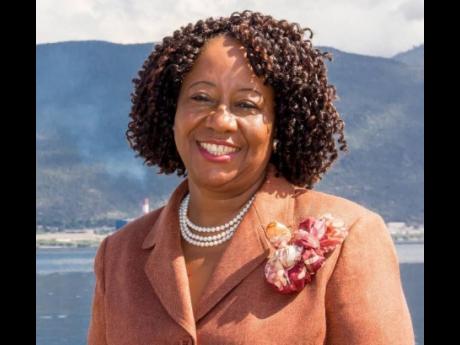Sex education for toddlers
With children as young as two years old being sexually abused, one counselling psychologist has recommended that sex education be taught from the preschool level so that toddlers can better identify paedophiles and notify those in authority.
The recommendation was made by researcher Joan Pinkney after reviewing reports from 215 parents/guardians whose children were sexually abused in 2018. The reports were documented by the Victim Services Division, which provides free counselling services to victims of crime islandwide.
“Sex education should be beefed up in schools. I know that there is some aspect of it, but I think we should start from the preschool level, what we call infant school, and more emphasis should be on children understanding the whole business of sexuality and what it is that they need to look for and who it is that they need to look out for and understanding the pattern of abuse,” Pinkney said.
“Of course, it has to be appropriate to their understanding, and so it has to be specially written and designed and taught so that the children are aware,” she added.
AT-RISK FAMILY PROFILE
Based on the reports, Pinkney was able to construct a profile of at-risk Jamaican families or parents whose children are victims of childhood sexual abuse. This formed the basis for her dissertation which was in partial fulfilment of the requirements for her Doctor of Philosophy degree at the Oxford Graduate School in Tennessee, United States.
The parents or guardians of children who are sexually abused were within the age group of 30 to 60, had at least a secondary-level education and their preferred religion was Christianity. They mostly resided in rural and inner-city communities and their parenting styles were authoritarian, permissive and neglectful.
“Research shows that those three parenting styles employed by parents produce negative results in children, as opposed to authoritative, which produces positive outcome when employed by parents,” she told The Sunday Gleaner.
The parents were mostly skilled workers or self-employed. In most of the cases, the mother was the most present caregiver; however, her attitude towards the victim was often “agitated, punitive, judgemental, lax, accommodating, unconcerned and indifferent”.
“Usually you think that persons who have children who are abused, and certainly repeatedly abused, are skilled workers or from low socio-demographic society or such, but that was not necessarily so. What was shown was that there was a range of skill sets, professionals and otherwise, that were involved,” she said.
“It was those teachers, it was those managers and those persons at the higher level, and so you would expect that they would have a higher level of cognitive reasoning, but their children were still exposed or still involved,” she noted.
The fact that the majority of these parents were secondary-level educated did not make them more cautious, and despite the dispelling of myths relating to sexual abuse and children over the years, Pinkney found that some still persisted. One such is that a sexually transmitted infection could be cured by having sex with a virgin.
IDENTIFYING ABUSERS
The counselling psychologist also found that while a high percentage of the parents admitted to knowing who sexually abused their children, half were reluctant to answer when asked if it was a family member.
“It is more difficult to deal with, but the fact is that if we don’t know, we can’t deal with it,” she asserted.
Apart from beefing up sex education in schools, starting from the early-childhood level, the PhD candidate recommended the implementation of preventative and interventive strategies, such as parent training and the review of laws and regulations governing child sex abuse.
Pinkney believes the profile developed through her study could be a useful resource for state policymakers, parenting and child advocacy agencies, parents, caregivers, educators, and counsellors in seeking to advance the protection of at-risk children from prevalent sexually abusive situations.
“Children should be exposed to the behavioural patterns of the abuser, to understand the cultural myths associated with abuse in Jamaica, be guided against the fear of speaking out about abuse, regardless of who was the abuser, and be informed about the effects abuse can have on them as they develop and become adults with children,” she recommended.

